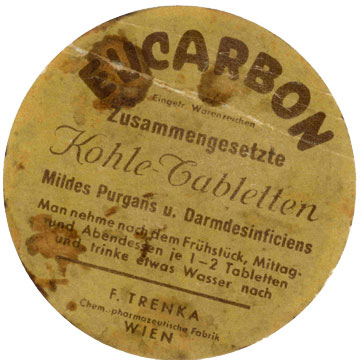DNA barcoding, like other rapidly diffusing technologies, elicits worries. Jesse Ausubel and Paul Waggoner have made a list of Barcoding Worries and Limits 1-9. We think it valuable to recognize and catalogue them. At a later time, we may post our responses to the worries. We think the worries are mostly phantoms, but also accept that humans see phantoms.
News
Brewster Kahle speech
Back in early 2002, concerned about ways to preserve and keep accessible websites important for history of science and technology, Abby Smith and David Kirsch brought Jesse in contact with the Internet Archive, its founder Brewster Kahle and extraordinarily talented associates such as computer scientist Raymie Stata. Soon after, expert PHE computing advisor Perrin Meyer joined Jesse on a visit to the Archive headquarters at the Presidio in San Francisco, where we were able to appreciate the fantastic concept and excellent early implementation of the Internet Archive. We were pleased to help arrange for the Sloan Foundation to become one of the Archive’s major supporters. The ever-inventive Brewster Kahle has meanwhile progressed with his audacious plan for universal access to all recorded knowledge , and on 25 October 2005 the Archive held a meeting to form the Open Content Alliance to speed the scanning of books into a digital library. Our colleague, Doron Weber, attended the widely reported meeting and is quoted in the Reuters coverage.
History of Marine Animal Populations honors
The History of Marine Animal Populations (HMAP) project of the Census of Marine Life program honored Jesse with the opportunity to present the Keynote address to the HMAP Oceans Past conference 22-25 October in Denmark. Jesse spoke about “Future Knowledge of Life in Oceans Past.†The news release and work presented at the conference attracted worldwide press coverage, including in the New York Times, Economist, and Spanish EFE wire service.
Serious Games in Washington Post
The effort we have encouraged by USC to conduct a competition to create Serious (Video) Games about international relations kicks off with coverage in the 16 October Washington Post.
Goobye and Good Luck: It can happen here
Seeing the good new film about Edward R. Murrow, “Goodbye and Good Luck,” reminded Jesse Huntley Ausubel that his godfather, Reverend Joseph Huntley, made the front page of the New York Times for attacking McCarthy in a sermon entitled “It can happen here” in July 1953, more than 3 months before Murrow aired his first show on CBS TV.
Genome Web article
On April 23, 2003 Jesse visited with Craig Venter at the Institute for Biological Energy Alternatives in Rockville MD to learn about IBEA’s plans for sequencing the microbial “marine genomeâ€, which would strongly influence and advance the International Census of Marine Microbes of the Census of Marine Life. In response to a not-so-serious remark from Jesse about “What’s next after sequencing the ocean, the atmosphere?â€, Craig answered very seriously, “Yes, exactly.†This led to a collaboration, ably implemented by Sloan Foundation colleague Paula Olsiewski and IBEA’s Bob Friedman, to explore the “air genome†in New York City. An October 17 2005 story in Genome Web reports good progress in the project, which was announced in a March 2005 press release.
Lederberg Scientific Medley
The Rockefeller University honored Joshua Lederberg with an all-day Scientific Medley on 17 October 2005. Jesse had the honor of leading the organizing committee and moderating the program, which included outstanding talks by William Perry and others
Eucarbon
As co-discoverers of “Decarbonizationâ€, we were amused to find a container of Eucarbon (“Good carbon†in Greek) made by a Viennese manufacturer early in the 20th century. The old label advises that the product is a mild purgative and disinfectant, and one might take 1-2 tablets after breakfast, lunch, and dinner with some water. It turns out the same company, Trenka, still makes the product. Should attendees at global climate change conferences take Eurcarbon? Click here for product history and a Wienerlied about Eucarbon sung with true Viennese accent.

Five new old papers
We post new scans of four of our older papers:
A Review of Estimates of Future Carbon Dioxide Emissions, part of “Changing Climate: Report of the Carbon Dioxide Assessment Committee” (360 KB)
Directions for Environmental Technologies (1 MB)
Technology and the Environment: An Overview (1 MB)
Regularities in Technological Development: An Evnironmental View (1.5 MB)
Also, we post a new color scan of a previously posted paper:
A Second Look at the Impacts of Climate Change (7.7 MB)
ABBI brochure
We post Mark Stoeckle’s beautifully illustrated brochure for the project to develop DNA barcodes for all birds, the All Birds Barcoding Initiative (ABBI).
https://phe.rockefeller.edu/barcode/docs/ABBI-barcoding%20life%20takes%20flight%20v1.1.pdf